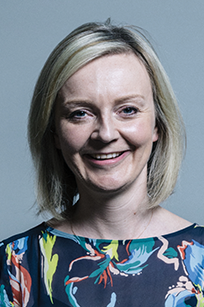News / NHS urges Truss to tackle costs and staff shortages
 Ms Truss said tackling the energy cost crisis is a priority. The scale of its impact on the NHS could be seen in a British Medical Journal report, which said trusts faced monthly energy costs this winter that are two or even three times higher than last year.
Ms Truss said tackling the energy cost crisis is a priority. The scale of its impact on the NHS could be seen in a British Medical Journal report, which said trusts faced monthly energy costs this winter that are two or even three times higher than last year.
Most trusts contacted by the BMJ are expecting combined gas and electricity bills to double at least, although one trust has budgeted for a 214% increase in electricity and gas costs in 2022/23 – around £27m more than 2021/22.
In May, NHS England acknowledged the impact of rising inflation on the health service, and redirected some of its national budget to help the service cope with inflation that had arisen since planning assumptions were set in December 2021.
It allocated £1.5bn overall, with £485m earmarked for increased energy costs.
As Healthcare Finance went to press, the prime minister announced a two-year plan to cap domestic bills at an average of £2,500 a year. Public sector energy costs will also be limited at a rate equivalent to the domestic ceiling, initially for six months.
Saffron Cordery, interim chief executive of NHS Providers, said trusts would welcome the announcement. ‘Urgent action was needed to address the soaring energy bills trusts and other public sector bodies are facing, and we are glad that a decision was finally made to protect public services from spiralling energy costs,’ she said.
‘However, trusts need more detail from the government about how the equivalent energy price guarantee will apply to them over the next six months.
‘Without these measures, many trust leaders would have been hit by an exorbitant rise in energy costs, with no price cap available to them, with others being increasingly exposed as their current energy contracts expire.’
The domestic cap will provide some relief for staff and patients at a time of increasing financial hardship, she added.
Ms Truss named health as one of her three priorities, and new health and social care secretary Therese Coffey said she would focus on ABCD – ambulances, backlogs, care, and doctors and dentists. Later, Ms Coffey, who is also deputy prime minister, added that she was ‘very conscious’ of NHS staff shortages.
Ms Cordery said the NHS would expect Ms Truss to deliver on her commitment to make the health service one of her priorities. ‘She now has an opportunity to lead a government that must take decisive action on the key challenges facing the NHS and social care, including severe staff shortages, treatment backlogs, NHS funding and social care reform, and support it to deliver,’ Ms Cordery said.
NHS Providers pointed out that the impact of the rising energy costs was compounded by the 2022 pay award not being fully funded. Below-inflation pay awards, the cost of living crisis and ongoing concerns over pension taxation for senior staff had adversely affected NHS recruitment and retention. A fully funded long-term workforce plan was needed quickly.
The latest figures for the NHS in England show vacancies have risen to 132,000.
‘Patients experience [workforce issues] daily,’ Ms Cordery said. ‘The elective waiting list now stands at 6.8 million alongside substantial care backlogs across mental health, primary care and community services. With severe pressures on ambulance services and urgent and emergency care, the winter ahead will be very challenging.’
Health initiatives must be underpinned by a long-term funded plan for social care, Ms Cordery said. During the Conservative leadership campaign, Ms Truss said she would transfer £10bn a year from the NHS to social care – funding currently generated by the health and social care levy, which she intends to scrap.
Launching the levy, the government has said it will move a greater proportion of the fund to social care over time, so it is unclear whether Ms Truss’s statement is a continuation of government policy.
Ms Cordery said the government must meet its commitment to build 40 new hospitals by 2030, and take decisive action to improve the wider health estate. This will have an effect on patient safety and the productivity of services.
Related content
This forum will bring together national updates, topical issues, best practice examples and networking opportunities.
This conference will keep all those involved with NHS charities up to date with any changes to practices and procedures.